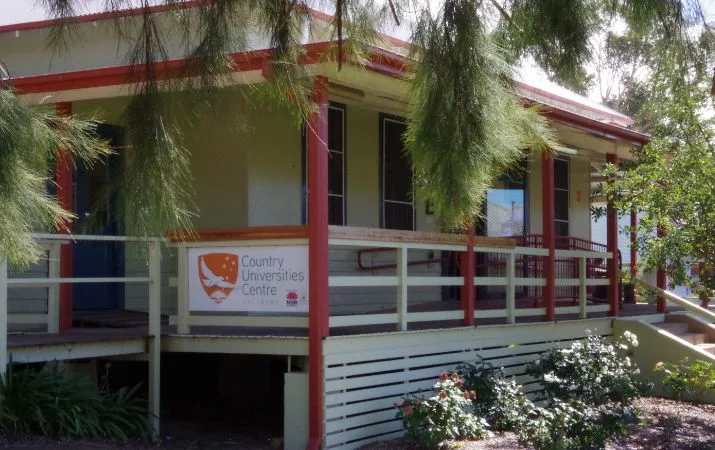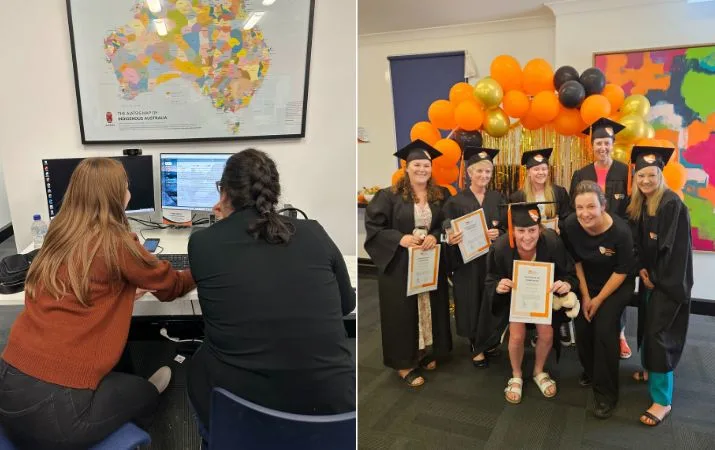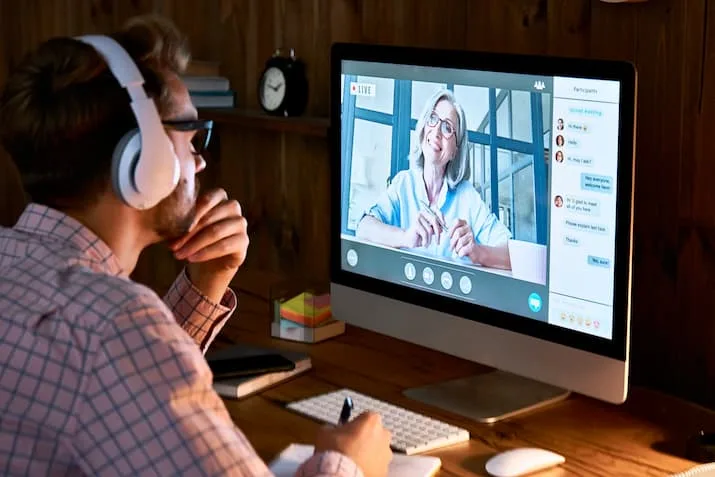Farm to desk: How Regional University Study Hubs bring your campus to you
By Open Universities Australia
They say distance makes the heart grow fonder. Unfortunately, it can also mean a dodgy internet connection and lack of study resources for tertiary students. But thanks to Regional University Study Hubs, that’s no longer a problem.
For most metropolitan students, studying online from the comfort of home is as simple as logging into an iPad and letting 5G do its thing—streaming buffer-free tutorial videos, editing presentations in Google docs, connecting with other students in online forums, then zipping down to the local stationary store when their pen runs out of ink.
For a student living in regional or rural Australia, the at-home study experience can look a little different.
Historically, university study was a potentially isolating experience for these students when access to reliable study resources, support and connection—both human and online—was limited.
Regional University Study Hubs are changing that, aiming to bridge the gap in environmental, social and technological disadvantages so that all tertiary students have the same opportunities—no matter where they call home.
What are Regional University Study Hubs exactly?
Regional University Study Hubs are a government program that provide physical, campus-like spaces for higher education students living in rural, regional and remote Australia.
Their purpose is to provide support for students living in these areas so they can access, participate and succeed in tertiary education without having to leave their communities.
This is achieved by providing:
High-speed internet
Physical study space
Computers, printers and other useful technology
A student network to connect with likeminded people
Video conferencing
Administrative guidance
Tutoring and academic support services
Pastoral care
Who can use them?
Regional University Study Hubs are available for all students in rural, regional and remote Australia who are studying university or VET courses online through any Australian institution—including Open Universities Australia.
These students are studying everything from accounting to zoology with over 30 different providers, and range from mature-aged students wanting to upskill and progress in their careers, to high school graduates who are not able to leave home and support themselves in metropolitan areas closer to the universities.

Similarly, study hubs are advantageous for those living in remote areas who may be restricted from leaving their hometown due to environmental, family or financial constraints.
Parents juggling work and family commitments with study are especially benefiting from having a dedicated space they can use to focus.
“Second time round, studying a postgraduate online while working full time and raising a family has been markedly different,” says Michael from Crookwell, who uses his local study hub. “Finding help and assistance at the start, and then a good space to study has been so valuable."
A chance to stay home
In the past, relocating to urban areas for study was the go-to alternative for accessing a high-quality university experience—a solution that brings about its own financial pressures and cultural challenges associated with leaving one’s support network, losing community connection, adjusting to a new environment, and supporting oneself.
“Distance education looked a lot different back in 2001,” recalls Tara, who grew up on a large property in a small town on the border of NSW and Victoria. “My heart and family values are country to the core. When I had to take the subject [psychology] by distance, I struggled."

With the combined help of online study and Regional University Study Hubs, these regional and rural students now have access to a high-quality higher education experience from leading universities, without facing traditional barriers.For Naomi, her second attempt at uni was much easier thanks to her local study hub and online study.
“Out of school, I moved away to study... I never finished the degree... I think the second attempt at uni happened at the right time for me. Online study was a perfect choice. This time around, I was starting a small business and settled here [Breadalbane]. I didn’t want to leave my family, friends, hometown, or horses.”
Breaking the cycle
As participation in higher education grows in these regions, skills shortage areas like education, health, engineering and technology can be filled, and career and lifestyle opportunities that weren’t there before are now possible.
Age barriers and generational cycles are also being broken, with more members of these communities able to consider university as a feasible pathway. In Goulburn, one in two students are the first in their family to ever study at uni.
One university student from Bowral recalls her return to study, and how she found her feet. “After I told my parents, my dad asked, ‘are you mad?’ When classes started, I found my brain again and a different motivation. This time I wasn’t just doing it for myself. I was planning a better life for my family, one where we could stay in our local community.”
Since being established, 12,836 students have been supported by Regional University Study Hubs, and the network has grown to 21 centres operating in 33 communities throughout NSW, Victoria, and Queensland.
If you’re living in a remote or regional area and are wondering whether higher education could be for you, book a consultation with one of our Open Universities Australia student advisors and discover what options are available.
You can also explore the Regional University Study Hubs Network to locate a study hub near you.



